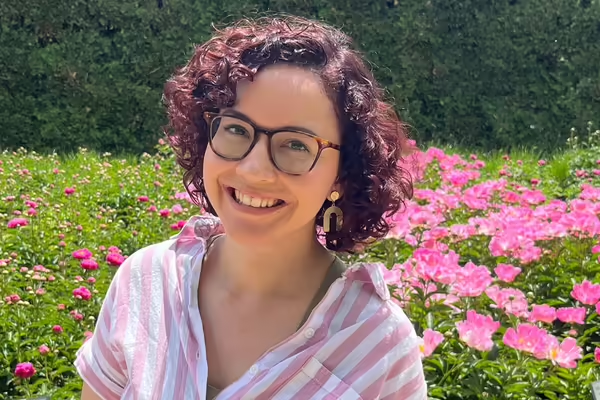
URBANA, Ill. — Power is so readily available, literally at the flick of a switch, that it is all too easy to forget how this valuable resource arrives in our homes and businesses and where it comes from. Energy demands are increasing across Illinois, and communities have difficult decisions to make about today’s energy sources, which will have a big impact on future costs, sustainability, and resiliency.
The University of Illinois Extension team of natural resource, environment, and energy experts recently welcomed Visiting Outreach Associate Linda Derhak in a new role connecting communities with grant funding to support equitable energy transition in rural areas and sustainable development through the Thriving Communities Technical Assistance Center.
“Extension is invested in forward-thinking strategies to help foster resilient environments and sustainable energy sources,” said Shibu Kar, Extension’s assistant dean of natural resources, environment, and energy. “By leveraging the university’s innovative research and cutting-edge technology, Derhak will be able to engage with and provide communities with resources to help them thrive in our evolving world.”
New state and federal climate legislation has created community development grant opportunities for rural regions. However, these communities may have limited resources to access the grants. The Great Lakes TCTAC is one of 16 centers nationwide funded by the EPA and U.S. Department of Energy to connect underserved communities with resources and apply for grants. Illinois Extension will focus on communities that are impacted by coal mine and power plant closures and help transition them to sustainable infrastructure.
This new position expands on Extension’s sustainable community efforts in collaboration with Community and Economic Development Specialist Lisa Merrifield. Together, they will assist local governments and community organizations in accessing funding and networking. Derhak will provide programming and create educational materials on topics including funding opportunities, renewable energy, and strategic planning to help communities better understand available options.
“I take a community-centric approach and apply an environmental justice lens to ensure my work reflects a community’s needs and vision and empowers them to shape their own clean energy future,” Derhak said. “Cultural attitudes and perceptions have a big role in the acceptance or rejection of renewable energy, and recognizing this helps us engage in conversations that move us forward.”
Derhak will also contribute to the Energy Education Council’s outreach and engagement Safe Electricity program by providing updates on developments in renewable energy, best practices for safety, and energy efficiency. Safe Electricity’s mission is to create a safer, smarter world by providing practical advice, information, and resources to help save lives, energy, and money.
Derhak has a bachelor’s degree in health society and policy from University of Utah and a master’s in urban planning from University of Illinois Urbana-Champaign. Her focus area is climate adaptation. Before taking on this role, she worked as a research assistant with the climate jobs institute, and as a graduate researcher with the Illinois Extension community and economic development team.
University of Illinois Extension develops educational programs, extends knowledge, and builds partnerships to support people, communities, and their environments as part of the state's land-grant institution. Extension serves as the leading public outreach effort for University of Illinois Urbana-Champaign and the College of Agricultural, Consumer and Environmental Sciences in all 102 Illinois counties through a network of 27 multi-county units and over 700 staff statewide. Extension’s mission is responsive to eight strategic priorities — community, economy, environment, food and agriculture, health, partnerships, technology and discovery, and workforce excellence — that are served through six program areas — 4-H youth development, agriculture and agribusiness, community and economic development, family and consumer science, integrated health disparities, and natural resources, environment, and energy.